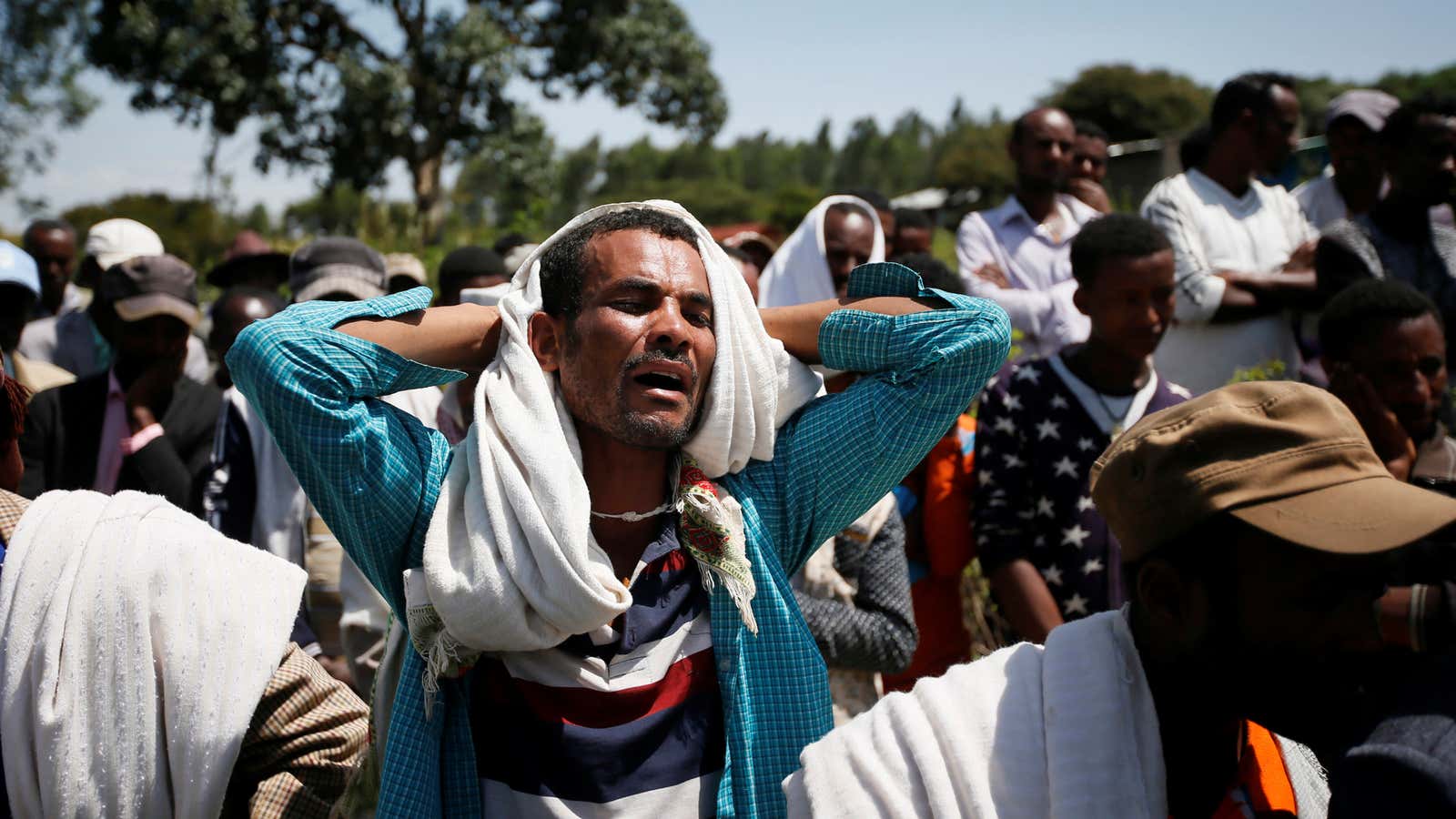Following the death of at least 55 people in the weekend, Ethiopia is coming out of a three-day national mourning with a complete internet shutdown and more protests engulfing the country.
Anti-government protests have broken both in the outskirts of the capital Addis Ababa, with reports of closed roads, a heavy presence of riot police and arrests of anti-government protestors. The internet was also shut down in the country this morning (Oct. 5), with both people in and out of the country confirming that the connection was down.
Tensions and political protests have gripped Ethiopia since Nov. 2015 when members of the Oromo, the country’s largest ethnic group, rejected plans to expand the capital into their region. Since then, anti-government protests have escalated, affecting businesses and foreign commercial properties in the country. Human rights organizations say at least 500 people have been killed during the largely peaceful protests.
Ethiopia’s government now says that 55 people died from the stampede in Bishoftu on Sunday (Oct. 2) during the annual Irreecha thanksgiving celebration held by the Oromo. Opposition groups and activists have however disputed those accounts, saying more people died after government forces opened fire. An American citizen was also reportedly killed on the outskirts of the capital after she was struck by a rock thrown by unknown individuals at a passenger vehicle she was in.
The Ethiopian government was also criticized for arresting Seyoum Teshome, an outspoken university professor, and prominent blogger. Teshome was arrested at his home in Oromia region the day before the stampede. The Committee to Protect Journalists condemned Ethiopian authorities for arresting Teshome, calling it “deeply disturbing.”
The advocacy group Human Rights Watch has called for an “independent investigation” to determine what exactly happened during the cultural event.
Emma Gordon, a senior Africa analyst with the risk consultancy Verisk Maplecroft, says the continuing protests and the government’s response reveal the government’s failure to address the protest movement. This, she said, will further mobilize the Oromos to join the demonstrations, and might nudge foreign investors to divest from the country.
“Investment does not appear to have slowed due to the protests,” Gordon said, “but investors will now be hesitant and watching closely for signs of the protests escalating and reaching the center.”
